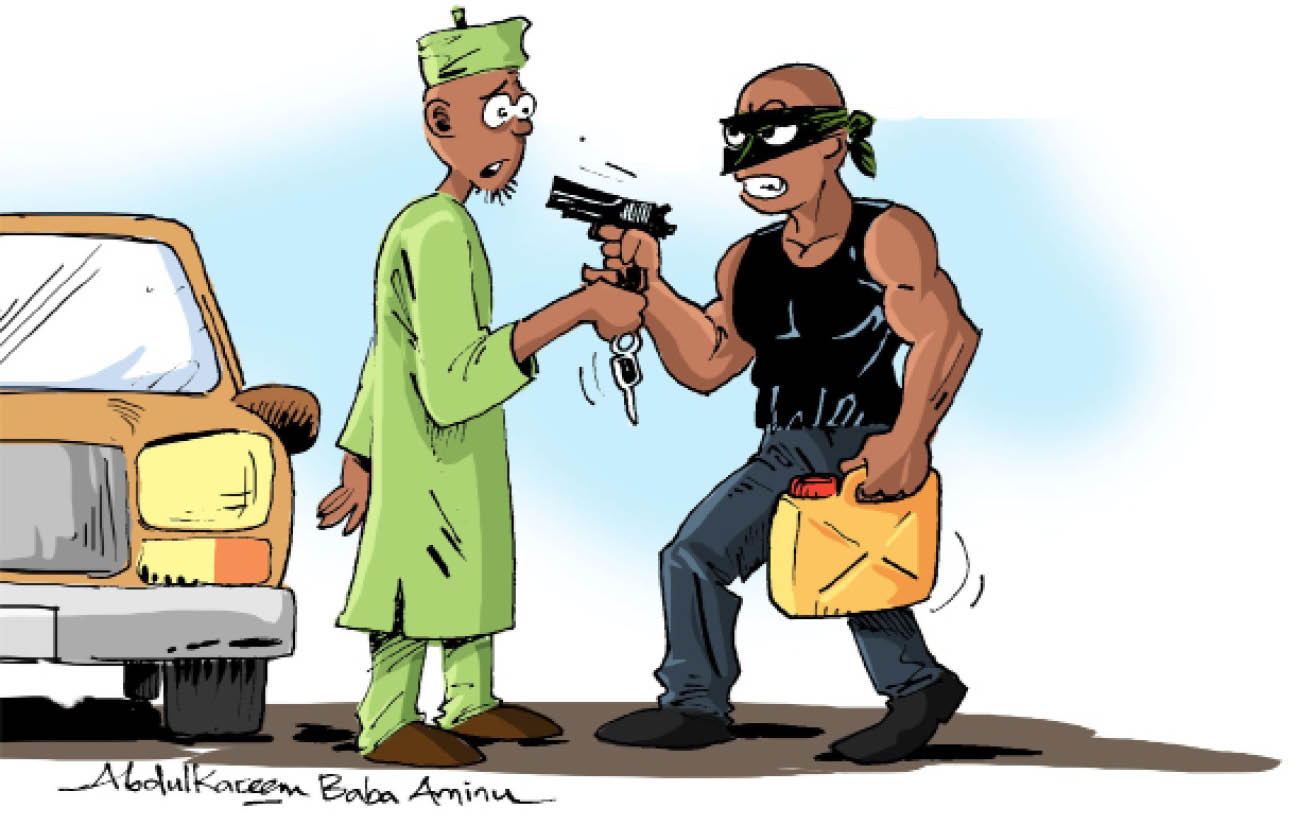Column No.6: On the rise and rise of hardship
Almost every single Nigerian earning a living – or a semblance of one – on the current economic landscape deserves empathy. The minute the dollar began to rise, some months ago, things started to worsen to never-before-seen levels. Then came the oh-so-rude removal of fuel subsidy (yeah, yeah, whatever: we know it’s been on the […]

Almost every single Nigerian earning a living – or a semblance of one – on the current economic landscape deserves empathy. The minute the dollar began to rise, some months ago, things started to worsen to never-before-seen levels. Then came the oh-so-rude removal of fuel subsidy (yeah, yeah, whatever: we know it’s been on the cards since a gazillion presidents ago), and an unprecedented trebling or quadrupling of prices of everything rocked the nation, shaking everyone on every level of society. But of course, the effect is direr on the average Nigerian, and I’ve heard stories that hunger is real even in some hitherto ‘middle class’ homes. I added the inverted commas because a proper classification of class as found in other economies, is rather mercurial in Nigeria. Which is why I’m not shocked that some truly unusual last resorts are being reached by the hardship=stricken Nigerian.
One of the most heartbreaking instances is that of Internally Displaced Persons (IDPs) in Niger State rebounding on street begging to stay alive. The Internally Displaced Persons from farming communities in Wushishi LGA have reportedly resorted to street begging to get food to eat. But to be fair, this particular instance was triggered by last Friday’s invasion of some villages in the local government by bandits. An official said attacks have subjected farmers who had food in abundance in their homes to the undignified condition of street begging for food. While the bandits continue to strike deadly blows on communities and troops remain relentless in fighting them off, the proverbial grass is suffering while two elephants battle. Another sad angle is that Nigerians, well-known for being our brothers’ keepers, are all facing hardship and thus find it difficult or impossible to help, with former helpers now needing help themselves.
An entire thesis is required to scratch the surface of this unfolding predicament. As we head towards the end of August 2023, we are still grappling with a myriad of challenges that have created a complex web of hardships for its citizens. Economic uncertainties, social tensions, and political instabilities have converged to form a perfect storm, leaving Nigerians facing daunting obstacles on multiple fronts. The cost of living has surged dramatically, rendering essential commodities and services unaffordable for a significant portion of the population. Food prices have soared, making it increasingly difficult for families to put meals on the table. Basic necessities such as fuel and electricity have become luxuries for many, as fluctuating prices strain household budgets.
The root causes of this economic downturn are multifaceted. Global economic fluctuations, coupled with internal mismanagement and corruption, have resulted in a devalued currency and limited access to foreign exchange. This has led to supply chain disruptions, hampering the flow of goods and driving prices higher. Despite efforts by the government to address these issues, the effects of economic instability continue to weigh heavily. Like I wrote at the beginning, unemployment and underemployment continue to cast a shadow over our nation. With a disproportionately large youth population, the job market has struggled to keep up with the demand for employment opportunities. Many qualified persons find themselves without suitable work, leading to a sense of frustration and disillusionment among the youth. Don’t even get me started on the ‘japa’ phenomenon.
FG appoints 11 CMDs for health institutions
NLC kicks against FG’s palliative, says cup of rice, N2000 not enough
I won’t even stress on the inadequate state of infrastructure and public services. Basic amenities such as clean water, reliable electricity, and functional healthcare facilities remain elusive for many communities. Then don’t forget that our security situation remains a considerable challenge. The country has been grappling with various security threats, including terrorism, banditry, and communal clashes. These security challenges not only endanger lives but also disrupt economic activities and strain social cohesion. Political uncertainties and governance issues also contribute, while a lack of transparency erodes trust in the government and its ability to address pressing issues. Political wrangling and power struggles divert attention from essential matters, leaving citizens frustrated, as seen during the recent ministerial appointment drama that enthralled the nation.
To end this, I can’t help but mention the reports from Taraba State, where impoverished citizens are under the cover of night raiding farms and carting away produce. Or the case of an Abuja wheelbarrow pusher who pushed away a housewife’s entire grocery shopping, leaving her in confusion, tears, and obvious pain. It’s August 2023, and Nigerians should not be confronted with a complex array of challenges that are deeply interwoven and mutually reinforcing. But we are, somehow. Addressing these issues requires comprehensive and coordinated efforts from both the government and civil society, and only then will the grim pall cast upon us by hardship will be alleviated, and hopefully even eradicated. One can dream, right?
